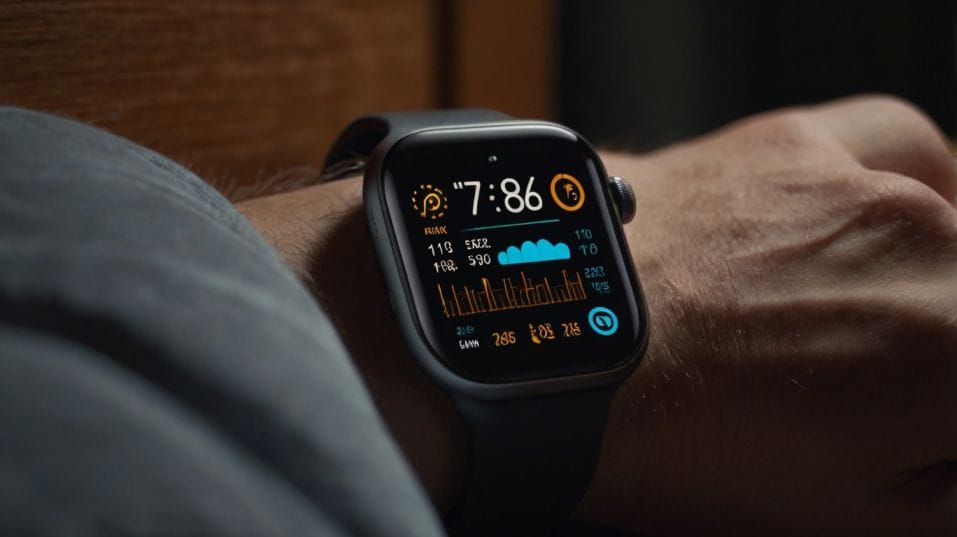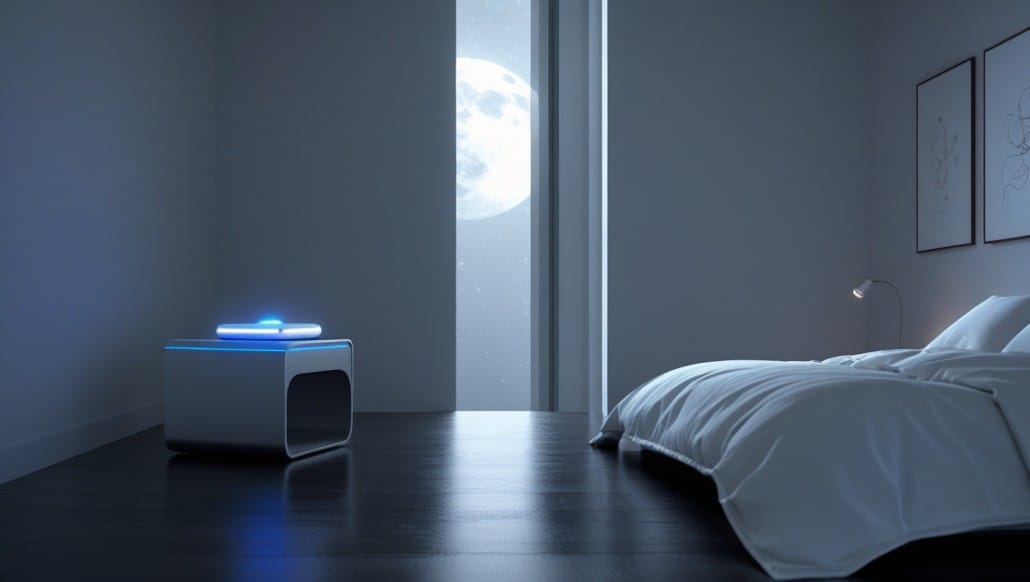A Guide to Sleep Trackers: What They Measure and How They Help
Unlock better sleep, energy, and recovery with smart sleep tracking. Learn exactly what to measure and how to turn insights into daily wins.

Have you ever wondered why some mornings you feel unstoppable while others leave you drained for no clear reason? It all starts with how you sleep—and what you know about it.
Sleep trackers make the invisible visible, giving you a powerful edge without guesswork.
They’re not just gadgets; they’re your personal guide to more energy, faster recovery, and better focus. Let’s break down what they measure and how you can use them to fuel real change.
What Sleep Trackers Actually Measure
Forget the old idea that sleep is just “time unconscious.” Modern trackers dig much deeper, giving you a detailed picture of how your body and brain actually recover at night.
Sleep Stages: Light, Deep, and REM Your night isn’t one long nap. It's a cycle through different stages that each serve a purpose.
- Light Sleep: Makes up the bulk of the night. Preps your brain for learning, memory consolidation, and emotional regulation.
- Deep Sleep: The heavyweight champ of recovery. Muscles rebuild, the immune system recharges, and critical hormones (like growth hormone) flood your body.
- REM Sleep: The mental reset. REM enhances creativity, memory, and emotional processing.

Tracking how much time you spend in each stage—and how smoothly you transition through them—gives you serious clues about what’s helping or hurting your sleep quality.
Heart Rate and Heart Rate Variability (HRV) Good sleep isn’t just about how long you’re out; it’s about how deeply your system resets.
- A lower resting heart rate during sleep usually signals strong recovery.
- A higher HRV means your autonomic nervous system is flexible and resilient—the hallmark of a well-rested, stress-ready body.
Breathing Patterns and Blood Oxygen Many trackers now measure respiratory rate and blood oxygen saturation (SpO₂).
Changes here can reveal disruptions you might not notice, like micro-awakenings or shallow breathing that wreck sleep depth.
Skin Temperature and Movement Slight rises or falls in your skin temperature signal how well your body is cycling through natural thermal changes linked to deep sleep.
Movement sensors spot restless tossing that cuts into your recovery time.Each of these metrics works like a piece of a puzzle. Alone, they’re interesting. Together, they build a full map of your nightly recharge process.
How Sleep Trackers Help You Improve
Data without action is just noise. What separates casual sleep tracking from serious sleep optimization is knowing how to translate insights into smart moves.
Spotting the Gaps When you see your deep sleep consistently falling short, it's a red flag—but it's also an opportunity.
Poor deep sleep? That points you toward nighttime habits that need fixing: cooling the room, shutting off devices earlier, timing your last meal better. Your tracker gives you a clear starting point instead of random guesses.
Reinforcing Good Habits Sleep wins don’t always feel dramatic in the moment. But when your tracker shows a steady climb in recovery scores or REM sleep after tweaking your wind-down, you get proof that what you're doing works.
That feedback loop is powerful. It builds momentum—and momentum beats motivation every time.
Creating Sleep Consistency You can’t hack your way around the body's love for routine. Sleep trackers reveal how even small shifts—like staying up two hours later on weekends—can trash your recovery scores for days after.
Once you see that data, you start respecting the clock differently. Regular sleep and wake times become less about discipline and more about stacking the odds in your favor.
Mastering Recovery Beyond Sleep Some trackers also monitor how daytime stress, workouts, and even nutrition ripple into your night. Heavy training late at night? Watch how your heart rate struggles to settle.
Eating too close to bed? See how it spikes movement and delays deep sleep. You start treating recovery as a 24-hour game, not a "just sleep more" box to check.
Building Personal Insights Everyone’s sleep needs are a little different. Some people thrive on 6.5 hours, others need 8+.
Some recover better with earlier bedtimes; others find a sweet spot closer to midnight. Your tracker helps you figure out what’s optimal for your body—not what the internet says is "ideal."
How to Make the Most of Your Sleep Tracker
Getting the data is easy. Using it the right way is what actually transforms your sleep. Before you dive into numbers and graphs, you need the right mindset for tracking.
Zoom Out, Don’t Fixate One bad night doesn’t mean your routine is broken. Look for patterns over weeks, not snapshots. Consistent trends tell you much more than isolated blips.
Use It Like a Coach, Not a Critic Your sleep tracker isn’t there to shame you. It's there to guide you. Bad night? Learn from it. Good night? Learn from that too. The goal is growth, not perfection.
Prioritize Environmental Tweaks Your surroundings shape your sleep more than you realize. Use your data to dial in simple, high-impact upgrades:
- Keep the bedroom cool (around 65°F is the sweet spot for most people).
- Cut exposure to bright light an hour before bed.
- Ditch late caffeine.
- Build a consistent wind-down ritual: same activities, same order, every night.
Experiment with Training and Nutrition Timing See how your body responds when you shift intense workouts to earlier in the day.
Notice what happens when you move your last meal to at least 2–3 hours before bed. Treat it like a personal experiment, and let the numbers tell the story.
Stay Curious, Stay Patient Real transformation doesn't happen in a week. It happens over months of consistent micro-wins. Let your tracker help you spot them. Celebrate them. Stack them.
Final Thoughts
Sleep trackers hand you the roadmap to energy, focus, and faster recovery. They take your nights from guesswork to strategy. If you’re serious about better mornings, sharper thinking, and stronger workouts, start tonight.
Pick your tracker, wear it, and watch. Listen to what your body’s telling you. Small shifts, repeated consistently, will stack into massive gains. Your future self will thank you. Time to get tracking—and get thriving.




